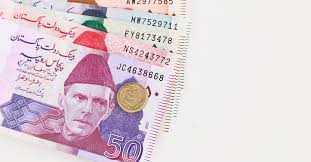
Despite being illegal under Pakistan’s laws, gambling continues to be a prevalent activity, especially in the form of underground and online betting. The absence of a clear regulatory framework for gambling in the country not only leaves many aspects of the industry unregulated but also has negative economic implications. This article explores how the lack of gambling regulation in Pakistan hurts its economy, focusing on lost tax revenue, job creation opportunities, and the growth of illegal gambling networks.
The Size of the Untapped Gambling Market in Pakistan
Gambling is a global industry worth hundreds of billions of dollars annually, and Pakistan, with its young and tech-savvy population, has a sizable market for betting activities. While gambling in physical casinos or on betting platforms is illegal in the country under the Public Gambling Act of 1867 and Islamic law, the market continues to thrive through underground networks and international online betting platforms.
In the absence of regulation, Pakistani gamblers often turn to illegal channels to place bets on sports events, particularly cricket, as well as casino-style games, poker, and even eSports. The popularity of online gambling is growing, driven by the rise of mobile internet access, digital payment systems, and social media marketing. Yet, this burgeoning market remains untapped in terms of taxation, regulation, and consumer protection—leading to significant economic and social consequences.
The Loss of Tax Revenue
One of the most significant economic costs of not regulating gambling in Pakistan is the loss of potential tax revenue. In countries where gambling is legal, governments benefit from a wide range of taxes, including betting taxes, license fees, and tax on gambling winnings. These revenues can be used to fund public services, such as healthcare, education, and infrastructure development.
In Pakistan, however, the illegal nature of gambling means that the government misses out on this potential revenue stream. Estimates of the size of the underground gambling market in Pakistan vary, but it is believed to involve billions of rupees annually, with a large portion linked to illegal betting on cricket and other popular sports. Had the industry been regulated, this revenue could have been channeled into the formal economy, funding key sectors and contributing to national development.
The absence of a legal framework for gambling means that Pakistan’s government must rely on traditional forms of taxation, which are often insufficient to meet the country’s growing fiscal needs. Legalizing and taxing gambling could provide a much-needed source of income, particularly in a time of economic strain, when Pakistan faces challenges related to inflation, foreign debt, and economic growth.
Missed Job Creation Opportunities
Another significant economic downside of the lack of gambling regulation is the missed opportunity for job creation. Legalized gambling industries, including casinos, online betting platforms, and sports betting outlets, create a wide range of employment opportunities, from tech professionals and marketing experts to customer service representatives, security personnel, and event organizers.
For instance, in countries where gambling is legalized, online betting platforms require skilled workers in technology, data security, and financial management to ensure smooth operations. Similarly, physical casinos offer jobs in hospitality, entertainment, and retail. If Pakistan were to regulate gambling, the country could see the creation of thousands of new jobs, particularly in sectors like IT, tourism, marketing, and customer support.
In addition to direct employment, a regulated gambling industry could spur growth in related sectors, such as tourism and event management. Sporting events with legal betting options—such as the Pakistan Super League (PSL)—could draw international visitors and media attention, boosting local economies through tourism, hospitality, and hospitality-related services. The government would also benefit from the income generated by these industries, further enhancing the economic impact.
The Growth of Illegal Gambling Networks
The lack of regulation in Pakistan has not only prevented the country from benefiting from a legitimate gambling sector, but it has also led to the growth of illegal gambling networks. These unregulated markets are largely controlled by criminal organizations and underground networks, which can have negative consequences on the broader economy.
Illegal gambling operations often involve money laundering, fraud, and other illicit activities that undermine the integrity of the financial system. The absence of regulation means that bettors have no legal recourse if they fall victim to fraudulent schemes, and there are no consumer protections in place to prevent exploitation. This environment fosters corruption, as criminals exploit the lack of oversight to operate with impunity.
Furthermore, the growth of illegal gambling networks can lead to capital flight, as money earned through illicit gambling transactions often leaves the country. With no way to track or tax these activities, the economic benefits of gambling remain in the shadows, feeding criminal enterprises rather than contributing to Pakistan’s formal economy.
The Impact on Sports Integrity
Another economic consequence of the lack of regulation in gambling is the impact on the integrity of sports events. In countries where gambling is illegal, there is often little to no oversight of betting activities, leading to a higher risk of match-fixing and other forms of corruption in sports. The absence of a regulated gambling industry means that Pakistan has limited mechanisms to ensure the integrity of its major sports events, including cricket and football.
This situation not only damages the credibility of sports competitions but also undermines the broader sports economy. When match-fixing or illegal betting becomes widespread, it deters sponsors, advertisers, and broadcasters from investing in local sports events. Additionally, it reduces fan engagement, as people become disillusioned with the integrity of competitions.
By legalizing and regulating gambling, Pakistan could establish measures to ensure the transparency and fairness of betting activities. This could include implementing strict licensing requirements, monitoring betting patterns, and investigating suspicious activities to maintain the integrity of sports. With the right regulatory framework, sports betting could become a legitimate and secure part of the sports economy, providing both financial support for teams and increased fan confidence.
Social and Financial Impacts of Underground Gambling
The lack of regulation also contributes to the social and financial risks associated with gambling. Without a legal framework, many individuals are forced to engage with illegal or unregulated gambling operators who have little incentive to act responsibly. This lack of regulation often leads to situations where vulnerable individuals are at risk of falling into gambling addiction or suffering financial loss without any consumer protections in place.
Gambling addiction can have far-reaching social consequences, contributing to family breakdowns, mental health issues, and financial distress. Without proper oversight, these problems go unaddressed, and individuals who experience harm from gambling have few avenues for support or recourse. Furthermore, illegal gambling activities often involve high-risk transactions and exploitative practices, which can exacerbate the financial problems faced by individuals involved.
Legalizing gambling and regulating it would allow the government to put in place safeguards that promote responsible gambling behavior, such as setting age restrictions, providing self-exclusion programs, and educating the public about the risks of gambling. This could help reduce the negative social and financial consequences of gambling while ensuring that those who choose to participate do so in a safe, controlled environment.
Conclusion: The Case for Gambling Regulation in Pakistan
The lack of gambling regulation in Pakistan has numerous negative economic consequences, including lost tax revenue, missed job creation opportunities, and the growth of illegal gambling networks that harm both the economy and society. In addition, the absence of regulation undermines the integrity of sports and allows for the exploitation of vulnerable individuals who are caught up in unregulated betting activities.
By establishing a clear legal framework for gambling, Pakistan could unlock new sources of revenue, create jobs, enhance the integrity of its sports events, and mitigate the risks of illegal gambling. While this would require careful consideration of social, cultural, and religious concerns, it is clear that the current system is limiting Pakistan’s economic potential. Regulating gambling could provide a balanced solution that benefits both the economy and the public while ensuring consumer protection and social responsibility.
Experience Thrills and Big Rewards at KKClub Casino – Pakistan’s Premier Gaming Hub!



